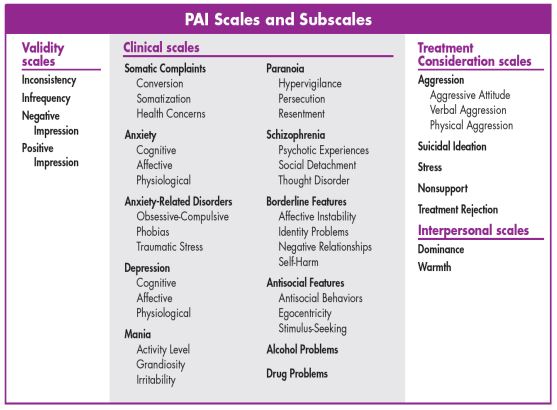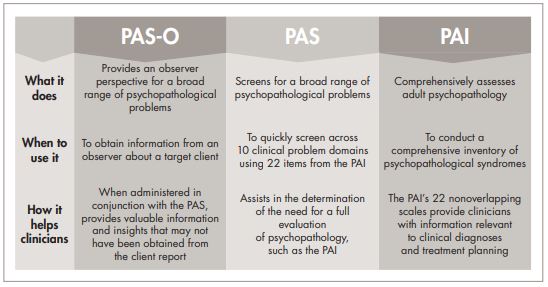Register now and start:
- Accessing PAR Training
- Shopping PAR products & tools
- Using online assessments with PARiConnect
Reliability analyses presented in the manual demonstrate that the PAI exhibits high internal consistency across diverse samples, and that the instrument's results are stable over short-term intervals ranging from 2 to 4 weeks. Specifically, median alpha coefficients and test-retest correlations exceeded 0.80 across the different scales, with results replicated in many subsequent studies. For example, recent empirical evidence provided by Maffly-Kipp and Morey (2023) corroborates these findings, indicating that the PAI maintains notable test-retest reliability over an extended duration of 9 weeks, as evidenced by a median test-retest correlation of 0.79. Notably, elevations on the PAI ICN/INF validity scales at baseline led to much lower test-retest reliability, providing support for the utility of these PAI indicators in detecting problematic responding.
The 344 PAI items constitute 22 nonoverlapping scales covering the constructs most relevant to a broad-based assessment of mental disorders: four validity scales, 11 clinical scales, five treatment scales, and two interpersonal scales. To facilitate interpretation and to cover the full range of complex clinical constructs, 10 scales contain conceptually derived subscales.

The accompanying screening test to the PAI is the Personality Assessment Screener (PAS). It is a 22 item screener that takes 5 minutes to administer. Also available is the Personality Assessment Screener-Observer (PAS-O). PAS-O allows you to gain valuable insight from someone close to the client to help screen for clinical issues and determine the need for follow-up testing. If PAS or PAS-O results indicate the need for in-depth testing, the PAI provides information relevant for clinical diagnosis and treatment planning.

The PAI (Personality Assessment Inventory) assesses personality and psychopathology, giving you and your team the insight and understanding needed to effectively formulate the treatment plan for your substance use patients.
Diagnostic clarity—The PAI assesses mental health symptoms that often co-occur with substance use disorder, leading to a more comprehensive treatment plan for your patients.
Screen for risk factors—The PAI can assist you in screening patients for risk factors such as impulsive behavior that can negatively affect treatment.
Create individualized treatment plans—The PAI includes treatment consideration scales so you can tailor your treatment plan to that patient's unique needs.
Alcohol and drug indexes —The ALC Est and DRG Est indexes help you detect substance use underreporting. Low scores are regarded with suspicion if your client has other characteristics that would lead you to expect the person to have at least experimented with alcohol or controlled substances.
